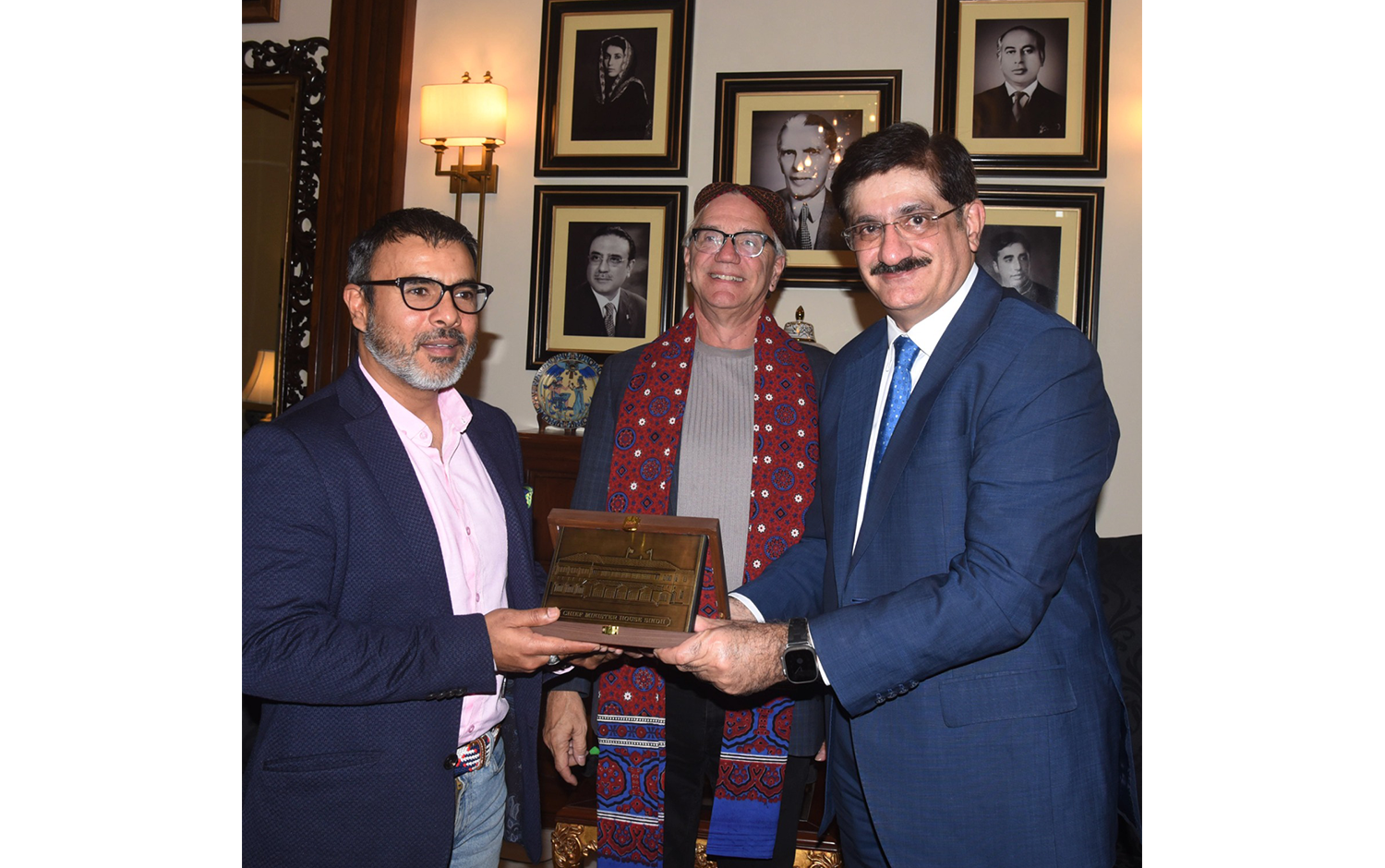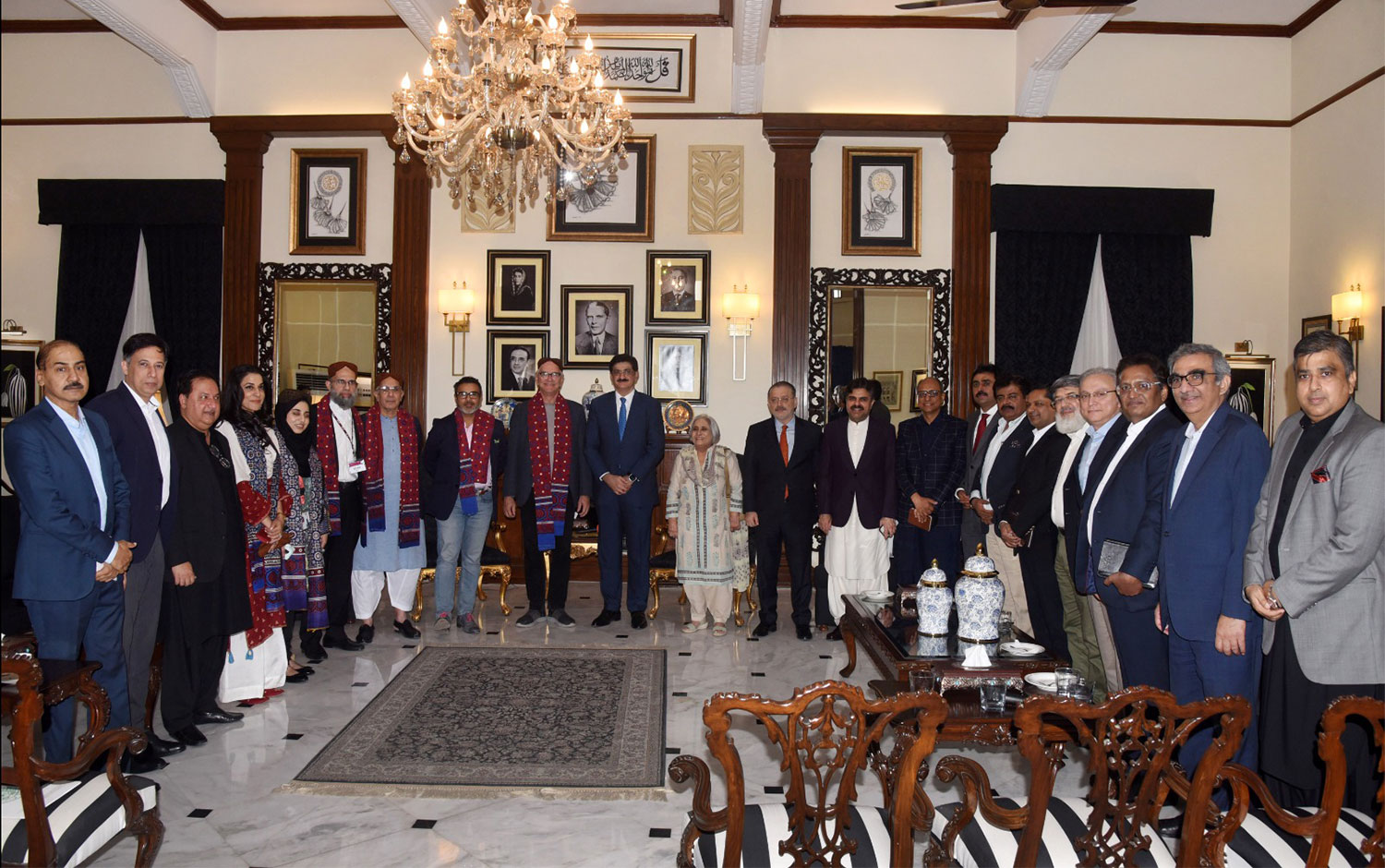IBA Karachi and Stanford Life Design Lab Join Hands with the Sindh Government to Reimagine Karachi’s Future
December 2024: In a groundbreaking initiative, IBA leadership and faculty from Stanford University’s Life Design Lab met with the Sindh government, led by Chief Minister Syed Murad Ali Shah, for a high-stakes strategy meeting. This collaboration, which began in California earlier this year, has now gained extraordinary momentum with the Stanford team stationed in Karachi to tackle the city’s most pressing challenges from within.
The recent strategy meeting brought together key members of the Sindh cabinet, senior bureaucrats, and Stanford experts, focusing on how design thinking can address the critical issues faced by Karachi’s 20+ million residents. From easing the traffic crisis to improving public safety and creating accessible open spaces for families, the discussions revolved around delivering swift, meaningful, and sustainable solutions.
The partnership’s broader vision goes beyond Karachi’s immediate challenges. Over the next three years, IBA team led by Dr. S Akbar Zaidi, Executive Director, IBA Karachi; Professor Azam Ali, Assistant Professor; IBA-SBS & Faculty Lead- Stanford & IBA Collaboration; Bill Burnett, Executive Director, Stanford Life Design Lab and Junaid Aziz, the IBA alumnus, Fellow and Faculty Member at Stanford’s Life Design Lab, will work closely with the Sindh government to establish a new culture of problem-solving, training ministers, bureaucrats, and students to think differently and act decisively. The Chief Minister has tasked these committees with ensuring that no challenge—be it urban planning, environmental sustainability, or public welfare—is met with outdated approaches.
Syed Murad Ali Shah, CM Sindh, emphasized the significance of this collaboration, stating, “Karachi’s challenges are immense, but so is our resolve. By bringing Stanford’s world-class expertise and pairing it with local insight, we are charting a new course. Junaid Aziz’s leadership and his understanding of both Stanford’s methodologies and Karachi’s unique challenges make him an invaluable partner in this journey.”
Under Junaid’s guidance, Stanford’s team and IBA’s brightest students will begin working with ministers and provincial action committees formed specifically for this initiative. These teams aim to embed human-centered design practices within government processes, accelerating the pace at which solutions can be identified and implemented. Early prototypes include innovative ideas for traffic flow optimization, enhanced public spaces, and community-driven security measures, all designed to provide immediate relief and long-term benefits to Karachi’s hardworking families.
Reflecting on his role, Junaid Aziz said, “Returning to Karachi and IBA, my alma mater, feels like a full-circle moment. This city has given me so much, and it’s an honor to bring the tools I’ve learned at Stanford to create meaningful change here. The Chief Minister’s visionary leadership and his deep commitment to Karachi inspire us to think big and act fast.”
Speaking about the collaboration, Bill Burnett said, “This partnership is not just about solving problems but about creating a blueprint for innovation that Pakistan can lead with globally. Karachi is a city of incredible potential, and this collaboration demonstrates how local insights paired with global methodologies can create truly transformative solutions.”
The Chief Minister’s bold initiative to bring Stanford to Karachi underscores his dedication to not just managing the city’s challenges but revolutionizing how they are approached. His ability to leverage his alma mater’s resources and bring global expertise to the heart of Karachi speaks volumes about his vision and commitment.
At the heart of this initiative is Professor Azam along with Junaid, hailed as Karachi’s prodigal son. Junaid, equipped with cutting-edge methodologies in design thinking and problem-solving, has returned to Pakistan to lead this transformative effort, bridging global innovation with local realities. The Chief Minister, himself an NED and Stanford alumnus, played a pivotal role in securing Junaid’s time and Stanford’s resources for Karachi, reaffirming his commitment to uplifting the city and its residents. As this collaboration unfolds, all eyes are on Karachi as it becomes a model for how academic-industry-government partnerships can create lasting impact.
About IBA Karachi:
IBA Karachi with 70 years of Leadership, Excellence & Impact has broadened its Academic Landscape by launching three unique schools: School of Business Studies (SBS), School of Economics & Social Sciences (SESS), and School of Mathematics & Computer Science (SMCS). This strategic expansion features IBA’s commitment to advancing Leadership, Excellence & Impact across diverse fields.


